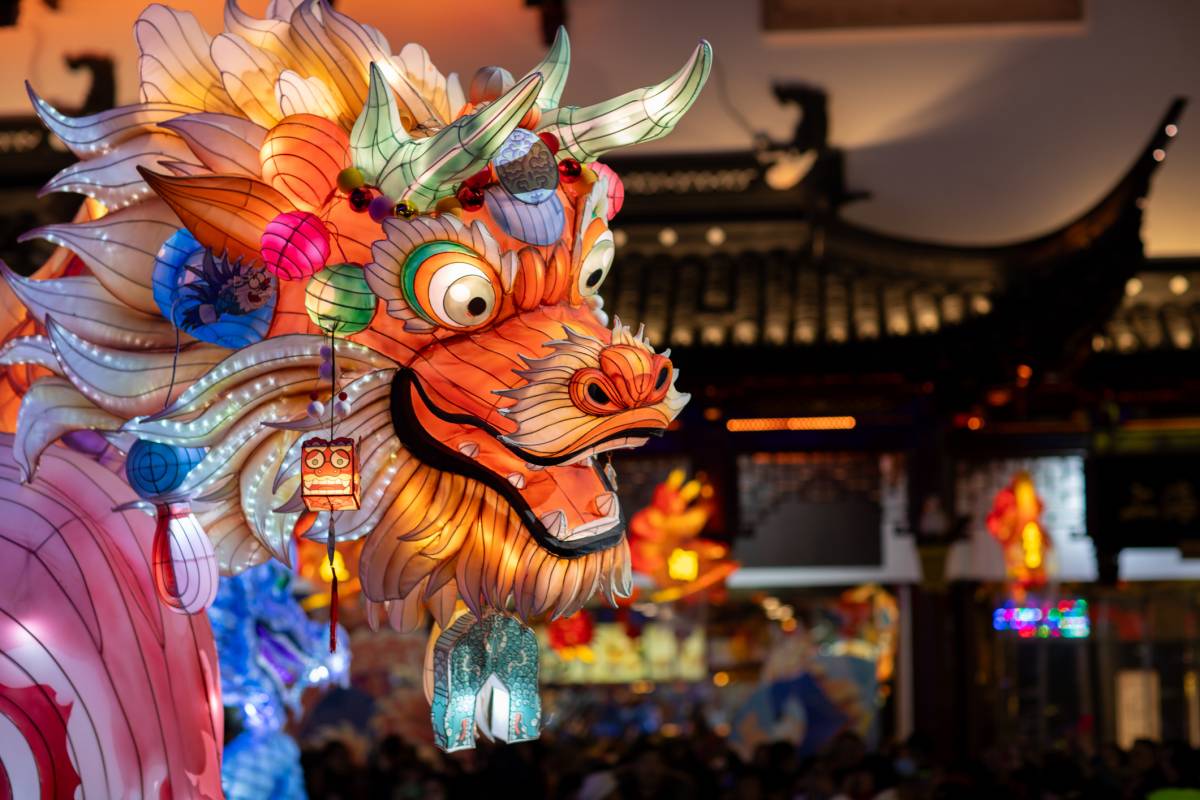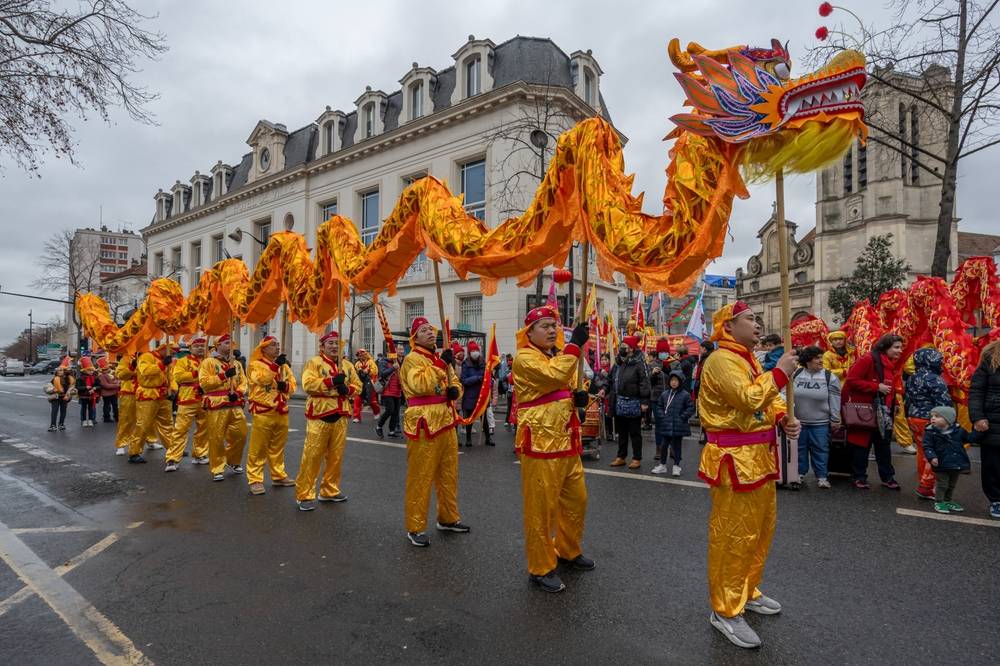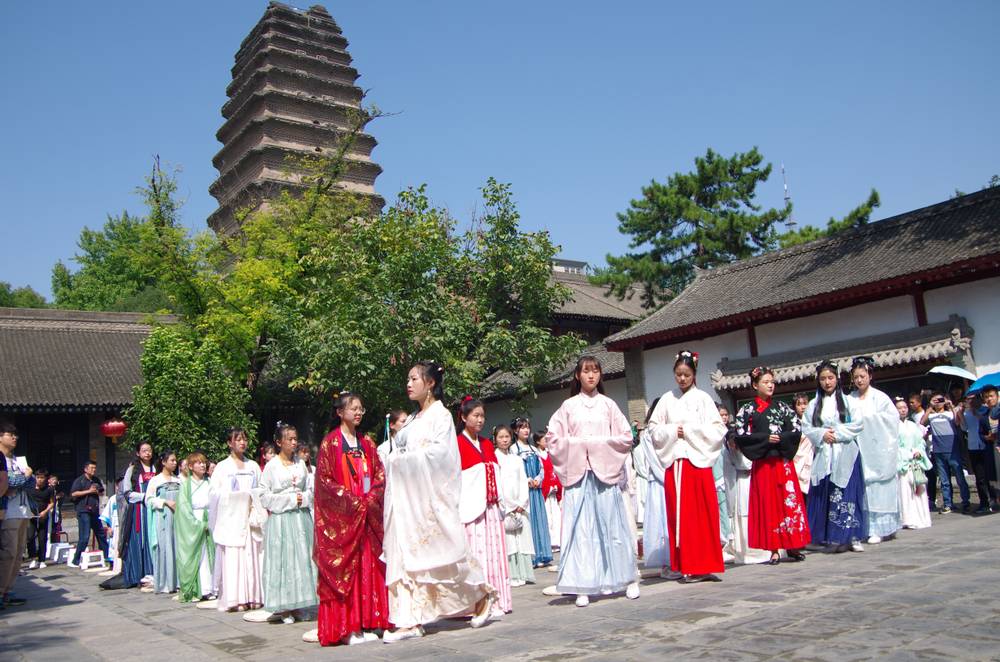


A dragon dance in Shanghai, China, 2024. Photo credit: Getty
Alibaba Group’s online travel platform Fliggy reported a rise in bookings over the Lunar New Year holidays, helped by a domestic tourism boom and adventure-seeking holiday-makers.
Domestic travel topped 2019’s holiday period, before pandemic-related curbs on movement kicked in, while long-haul domestic trips tripled compared with last year’s Spring Festival, Fliggy said.
The world’s largest human migration took place mid-February this year when travelers crisscrossed China to reunite with their families by planes, trains and automobiles. The eight-day public holiday in mainland China, which started on Feb. 10, is marked by temple visits, fireworks and dragon dances nationwide.
China’s peak travel season, known as Chunyun, is closely watched as a barometer of consumer sentiment and travel trends. Fliggy noted snow holidays and heritage tours were gaining popularity on its platform.
Fliggy’s report echoed a broader rebound in tourism. Official data from China’s Ministry of Culture and Tourism showed that travel and tourism-related revenue during the holiday hit record highs.
The ministry said on Sunday that travelers made 474 million domestic trips during the holiday, up 34.3% year-on-year and 19% above the holiday period in 2019. Domestic tourism receipts climbed to Rmb632.69 billion ($87.95 billion) during the holiday, up 47.3% year-on-year and 7.7% higher on 2019’s level.
“Strong momentum across the board,” noted analysts at Goldman Sachs, an investment bank.



Longer Trips
Since the pandemic, China watchers have noted a heightened willingness among consumers to spend on experiences that enrich their lives. The trend played out writ large during the Lunar New Year break.
Travelers ventured further and stayed away for longer this year, Fliggy said, partly because the public holiday was eight days long versus the usual seven-day break, but a continued relaxation of visa policies also proved supportive.
The growing emphasis on life experiences meant people were willing to invest more time and money in their holidays. Fliggy’s data shows that the average trip duration and booking fare rose by about 10% year-on-year.
“Experience-related spending, such as travel and entertainment, continues to exhibit robust growth,” said analysts at Macquarie, a bank.
Outbound travel hit a four-year high, with bookings nearly 10-fold higher than a year earlier. Singapore, Malaysia, and Thailand remained popular destinations, while trips to Europe, America, Australia, and Africa regained ground.
Fliggy said tourists’ horizon is expanding from the “four-hour flight circle” to the “12-hour flight circle”.



Thrill Seekers
Travelers ushered in the Year of the Dragon by taking winter breaks to northern regions such as Heilongjiang, Jilin and Hebei. Ice and snow tour bookings more than doubled year-on-year, said Fliggy, noting that “skiing + hot springs” had become a popular combination.
Sun-seekers headed south to Guangdong, Hainan and Fujian. Thrill seekers packed surfing, diving, paragliding and fishing into their breaks. Cruise bookings, including domestic and international cruises, soared by 445% year-on-year.
A lot of travelers preferred to simply jump in the car and hit the gas. Bookings for car services, including car rentals, chartered cars and transfers, nearly doubled year-on-year.
Heritage tours also proved popular, with bookings leaping by 115% year-on-year. A fashionable pastime in China is to don traditional Han Chinese costume, called hanfu, and visit ancient cities and temples.
“I especially changed into hanfu to watch the Qinhuai Lantern Festival. The lotus lanterns and zodiac dragon lanterns were thrilling to watch live. It really felt like traveling back to ancient times,” said Xiao Chen, a tourist from Henan, who took her parents to visit the large-scale fair held annually at the Confucius Temple of Nanjing.





